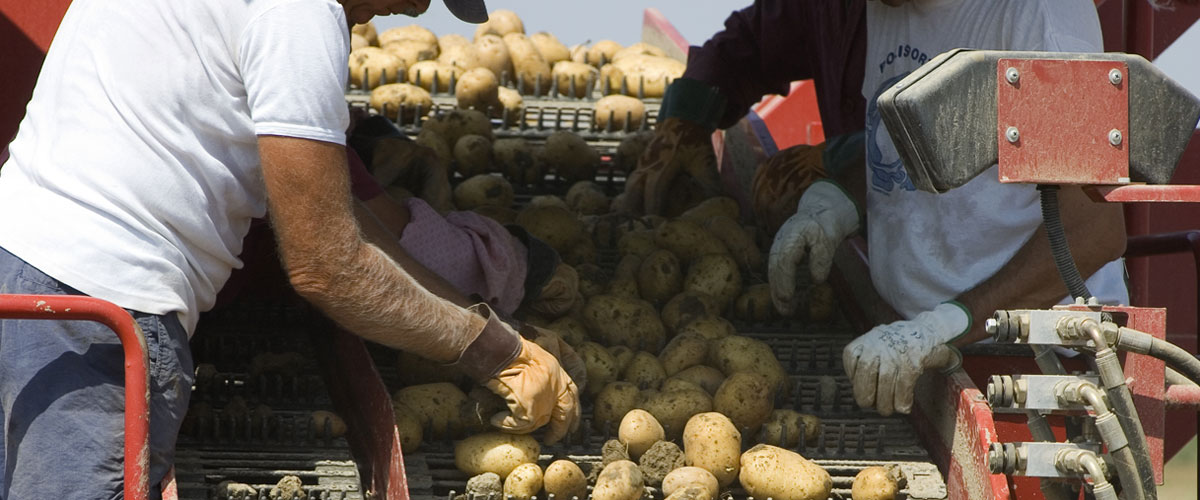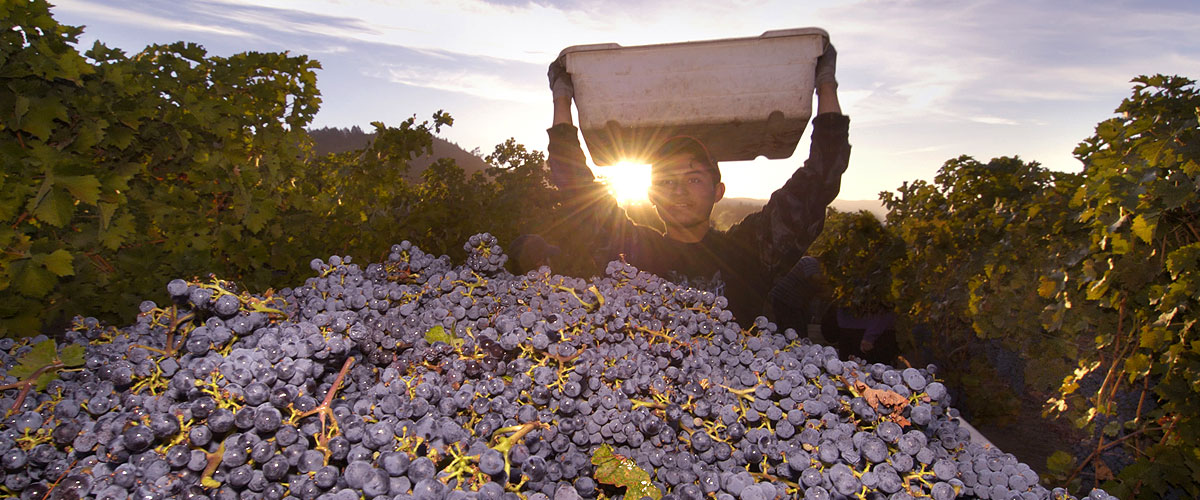U.S. Farm Labor Shortages

Author: Lesley Sykes, Manager, Sustainable Agriculture
The diminishing supply of farm labor is one of the most threatening issues affecting our nation’s fresh produce industry, a sector largely dependent on labor for the harvest and packing of delicate fruit and vegetables. As of last year, an estimated $3.1 billion had been lost in farm income due to labor shortages according to a 2015 report by the Partnership for a New American Economy.
Earlier this month, I spent three days in D.C. at the United Fresh Washington Conference, where this problem was a hot topic of discussion. The industry’s concern was clear: with such a large portion of the agricultural workforce made up of undocumented workers, the crackdown on illegal immigration, fewer migrants from Mexico coming to the U.S., a political stalemate on immigration reform and path to citizenship, and only one legal guestworker program in place, our nation’s agricultural producers have been left with few options. This puts increased pressure on producers who rely on a consistent workforce each season to get product into boxes and onto grocery store shelves.

Additionally, the situation can, in some cases, complicate progress in the area of responsible labor practices. For instance, increased reliance on Farm Labor Contractors (FLCs) to obtain sufficient farm labor can result in a lack of accountability. (I learned in D.C. that an estimated 50 percent of farmworkers in California are employed by an FLC). Moreover, workers lacking proper documentation are less empowered to address labor rights violations. And, the labor squeeze means greater reliance on the farm labor at hand, resulting in an increased risk of subjecting workers to unreasonable working hours.
On the other hand, increased competition has in some cases resulted in a shift in approach for recruiting workers. As reported in this article by The Wall Street Journal, farms describe efforts to attract employees by raising wages and offering additional benefits (and workers report moving from farm to farm, seeking higher pay at nearby farms). Supporters of the newly passed California bill, which grants agricultural workers the right to collect overtime pay after 40 hours in a week, believe just that: increased wages will increase the motivation for new people to join the farm labor force.
For now, farms are clamoring for labor resources during their peak seasons. Our nation’s only legal guestworker program, H2-A, has seen a nearly three-fold increase over the last six years. Yet the estimated 150,000 participants in that program are just a small fraction of the 2.1 million farmworkers nationwide, as I learned while preparing for United Fresh’s annual march on Capitol Hill. The U.S. Department of Labor cannot handle current application peaks or future program growth without a significant boost in resources to administer and enforce the program’s requirements.

H2-A is a useful option for those farms willing to jump through multiple hoops to make the program work. Through our certification experience at SCS, we’ve seen the program in action. In order to participate, labor management, remuneration for work, worker-provided housing and recordkeeping must meet specific criteria. Producers must also pay for transport from the workers’ countries of origin to the worksite. Additionally, producers must be able to demonstrate that they can’t find domestic workers before hiring temporary guestworkers.
Third-party certification plays an important role in communicating producer efforts to implement responsible labor practices. SCS’ Sustainably Grown certification program, for example, addresses the environmental, labor, and economic aspects of sustainability. Through the audit process, SCS validates best practices related to wages and benefits, working hours, training, housing conditions, occupational health and safety, and emergency preparedness. Certification does not directly address the dire need for immigration reform, or the lack of resources available for our nation’s guestworker program, but it can help producers identify gaps, improve their policies and practices, and make an independently verified claim about the ethical working conditions on their farms.
For Inquiries or Comments: Contact us Today.
Lesley Sykes is Manager of SCS Global Services’ Sustainably Grown and Veriflora® certification programs. Before joining SCS, she provided market research and business development consulting services to agricultural production companies in Arizona and Central America, and worked for the Boston-based non-profit organization, Red Tomato, supporting the strategic development of fresh produce responsible sourcing initiatives. Lesley has a master’s degree in agricultural and environmental science and policy from Tufts University.
